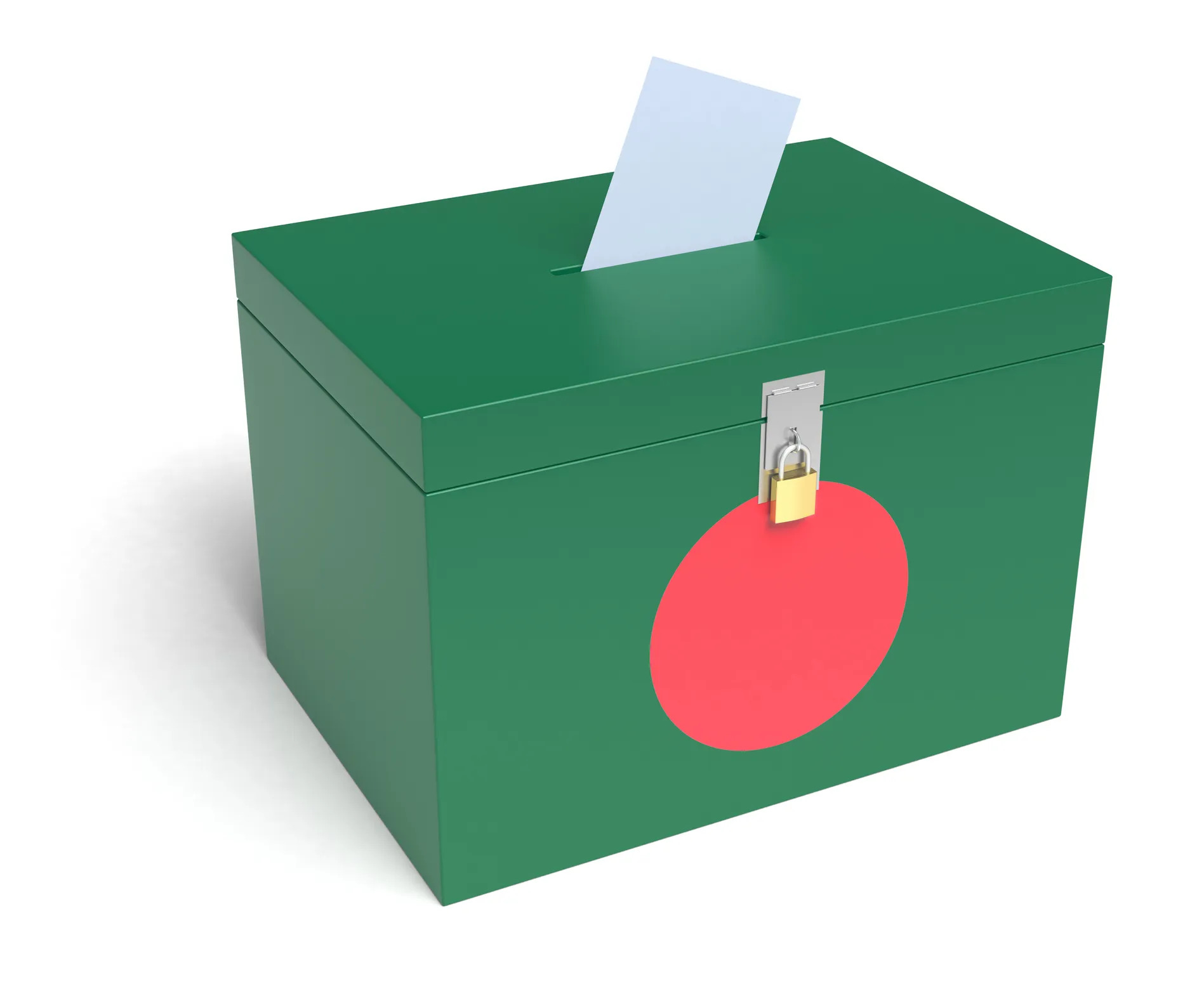Overcoming Bangladesh's electoral integrity deficit: time for political compromise and dialogue

With nearly 2 billion voters expected to head to the polls, 2024 has been dubbed a ‘super election year’. In fact, over the next 12 months, more than 70 countries will head to a presidential, legislative, or subnational election. Among them are seven out of ten of the world’s most populous countries, including India, the United States, Indonesia, Pakistan, Russia, and Mexico. Similarly, in South Asia, five out of its eight countries have held/are also planning to hold elections in 2024.
Bangladesh, with its 120 million eligible voters heading to the polls on 7 January, was one of the first to hold elections in this super year. However, as its 12th general election was once again characterised by toxic politics, an opposition boycott, crackdowns on dissent, repression, voting irregularities, and widespread violence, it fell short of basic levels of procedural and operational integrity, genuine political competition, inclusion, voter participation, safety, credibility, and legitimacy.
With the opposition Bangladesh Nationalist Party boycotting for the third national election in a row, the Awami League, led by incumbent Sheikh Hasina, won their fourth consecutive mandate, securing a supermajority in parliament by gaining as many as 222 of the contested 300 seats. Voter turnout was significantly low, the second lowest since the start of Bangladesh’s democratization in 1991, with less than 40 per cent of the eligible voters participating, according to the Election Commission of Bangladesh (BEC).
Such challenges to electoral integrity are not new to Bangladesh. Despite several credible elections consecutively held between 1991 and 2008, electoral integrity started to decline in 2014 and further deteriorated in 2018. As in 2024, these two last election cycles also lacked a level playing field, transparency, and fairness, and were characterised by irregularities, allegations of widespread fraud, intimidation, low levels of voter turnout, restricted electoral observation, and the worst electoral violence the country ever experienced.
Although Bangladesh’s political system and legal framework require elections to be competitive and held regularly, its electoral processes reveal inherent fragility and remain tenaciously beset by systemic deficiencies. Left unaddressed, one election to the next, these deficiencies have led to a sharp decline in public confidence in the government’s ability to hold credible elections. Despite the existence of a constitutionally independent electoral management body, the BEC, this body is perceived, and accused, of lacking independence. This widely perceived lack of independence has consistently damaged the BEC’s reputation.
Lacking credibility and integrity, the outcome of the 12th general election presents causes for concern, as the country is poised to face another five years of deeply polarized, confrontational, acrimonious, and often violent, politics. In turn, such a protracted political stalemate could continue to have serious
Such a negative outlook is attested in International IDEA’s Global State of Democracy (GSoD) in which Bangladesh performs at a low level in three categories (Representation, Rights and Rule of Law) and at a mid-range level in Participation. Over the past five years, the country has experienced declines in Elected Government and Judicial Independence, with data showing that Bangladesh’s rankings in Rights (134) and Rule of Law (135) are among the bottom 25 per cent in the world. One area of concern is Judicial Independence, which is steadily weaponized by both dominant parties to consolidate power.
Considering that Bangladesh’s political stalemate has persisted since 2008, discussions about electoral reform are also nothing new to the country. There have been repeated calls for electoral reform, followed by repeated needs–assessments, suggesting ways to enhance the integrity of elections – legally, procedurally, and operationally – and how they could be made more genuinely competitive, and more independently and professionally managed.
Yet, the 2024 general election was held without the significant and authentic reform it so urgently required. Bangladesh’s deep electoral integrity deficit cannot be overcome unless both the political and electoral dimensions of required reform are once and for all addressed. However, the present political climate leaves few alternatives besides a significant political overhaul, as any significant reform of the nation's political and electoral systems is hindered by the existing political stalemate.
As elections are processes involving both political and technical dimensions, addressing any major technical problems resulting in electoral deficiencies requires, first and foremost, political will, genuine compromise, and consensus. Seeking to reform elections one-sidedly, in isolation, prioritising own political gains at the expense of the broader democratic future of the country, has proved to be an ineffective, short–lived, and futile effort.
Meaningful electoral reform in Bangladesh hinges on the main, entrenched political parties overcoming their disputes, embracing sincere dialogue, prioritizing national and public welfare over power struggles, and agreeing on solutions to fix the persistent flaws that compromise the elections' integrity and legitimacy.
While the political element is undeniably the hardest to overcome, political consensus, will and compromise are indeed the sole requisites that could pave the way to viable legal and technical reform. Proposed reforms have been thoroughly debated and are also nothing new, but they could include, for example, to:
- Ensure a greater independence of the BEC from political influence. This could be addressed in two ways: first, by improving its structural independence, by strengthening the legal framework to provide more safeguards for its autonomy; and second, by enhancing the BEC’s behavioural independence, by instilling in this body an ethical culture of ‘fearless independence’ in that its officials do not bend, in their behaviour, to governmental, political or any other partisan influences.
- Reduce the occurrence of irregularities in the voting and counting processes by assisting the BEC to both enhance the professional skills and the ethical behaviour of polling station officials.
- Establish a robust electoral code of conduct that all political parties must adhere to, with strict, enforceable (and enforced) penalties for any violations.
- Enforce transparent campaign financing laws to reduce the influence of money in politics and ensure a level playing field for all parties.
- Strengthen the judiciary's independence to ensure that electoral disputes are resolved impartially and timely.
- Guarantee media freedom and access, allowing media to report without fear of censorship or harassment and promoting a diverse media landscape that provides a platform for all political perspectives.
- Take effective measures to minimize political violence and ensure the safety of voters, candidates, and election observers during election periods.
- Provide international and domestic election observers with greater freedom to access and monitor all phases of the electoral process.
- Encourage civic engagement and civil society participation in monitoring and advocating for electoral integrity.
- Promote civic education to empower citizens to participate in the democratic process, understand their rights, and make informed decisions.
- Engage in public awareness campaigns to rebuild public trust in the electoral system, the BEC and encourage citizens to actively participate in elections.
- Foster international advisory and technical assistance to help ensure that electoral processes meet international standards.
For all these reforms to happen, and happen in a meaningful way, it may be necessary to pause and draw a line, so that the government, the political parties, civil society, and international actors can collaborate on the definition and implementation of a comprehensive electoral reform roadmap. It is only by working together that a shared vision of democratic elections in Bangladesh that finally enjoy high levels of integrity and hence also of legitimacy and public trust can be attained.




